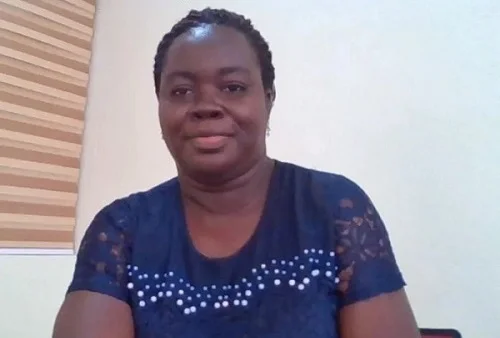Hot!
Dlamini-Zuma: Use the abundant resources to develop Africa

Dr Nkosazana Clarice Dlamini-Zuma, former Chairperson of the African Union Commission, has urged African leaders to utilize the abundant resources the continent is endowed with to the benefit of their people.
“In Europe, I don’t know how many days of sunshine they have, but here we have at least over 300 days of sunshine. We must take advantage of that. We have our rivers, we must use them. And we are blessed with the diversity of water and oil, which we must benefit from,” she noted.
Dlamini-Zuma was speaking on the topic “Why the world needs a Dynamic Africa and what role must each African Play to achieve this goal” at the BOMA of Africa event organized by AUDA-NEPAD and AfroChampions on the sidelines of the Africa Union’s Mid-Year Coordinating Meeting held in Accra last Saturday.
Under the theme “From the Africa We Want to the Africa We Build,” the 2024 edition of BOMA of Africa aimed at celebrating the radical ideas and actions driving Africa forward.
This festival of innovation and unity featured debates, discussions, and announcements of groundbreaking initiatives that exemplify the milestones of African integration and development.
Through focused discussions on health, wealth creation, development financing, and governance, BOMA 2024 aimed to ignite new momentum towards realising Africa’s continental aspirations. By spotlighting major projects and initiatives, the event aimed to foster a spirit of collaboration and determination.
In a world marked by geopolitical shifts, technological advancements, conflicts, and economic turbulence, Africa’s strategic blueprint, Agenda 2063, has become urgent and necessary. The BOMA of Africa serves as a high point for showcasing and celebrating strategic developments on this roadmap, providing a platform to mobilize support for peace, security, and development.
“Our minds and our trajectory to Agenda 2063 cannot be determined only by investors, otherwise, we are colonised. It must be determined by what we can do and what we want to do,” Dr. Dlamini-Zuma said.
According to her, “We need to build our own trains. We need to build our own cars. We need to build roads. Eventually, we should also be able to build our own lakes. Maybe not today. It’s a big elephant, one bite at a time, but we must get there.”
Key highlights at BOMA 2024 included the 2nd Sankore Lecture, the inaugural Sankore Awards, and showcasing transformative projects such as Energize Africa, the Programme for Infrastructure Development in Africa, and the Home-Grown Solutions Accelerator. These initiatives underscore commitment to advancing regional integration, socio-economic growth, and resilience across the continent.
A longstanding member of the African National Congress, who currently serves as Chancellor of the University of Limpopo, Dr. Dlamini-Zuma advised Africans to not let colonisation and slavery define them, but rather, remember their unique identity.
“Before we were colonised, we were a very dynamic continent and dynamic people. Even the Europeans themselves acknowledge that Africa was a dynamic continent,” she noted.
Dr. Dlamini-Zuma expressed disappointment and worry that Africa, with its huge youthful population, has become a supplier of labour to other parts of the world. She said Africans must travel out of choice and not out of desperation.
She encouraged African leaders to improve the conditions in their countries to prevent their citizens from travelling out of frustration and desperation.
“If they go somewhere else, it should be out of choice, not out of desperation, as it’s happening today. But also, I always get this complaint about how difficult it is around African countries,” she said.
AUDA-NEPAD and AfroChampions, alongside other strategic partners, have hosted the annual BOMA of Africa event during African Integration Week since 2019. This year’s BOMA was aligned with the AU Mid-Year Coordination Meeting, further cementing its significance on the continent’s commemorative calendar.
The Boma of Africa 2024 was held in Accra, Ghana on July 20, 2024 on the sidelines of the AU Mid-Year Coordinating Meeting.
This year’s theme, “From the Africa We Want to the Africa We Build” brought together distinguished leaders, strategists, and innovators to celebrate and assess the remarkable progress of Agenda 2063.
Hot!
Swedru All Blacks back to winning ways, Roshan humble King Faisal

Sekondi Rospak FC made it eight wins in eight successive home games after three second-half goals from John Amoah, Joseph Ntow and Stephen Anthony Kofi. John Amoah opened the scoring in the 55th minute after a barren first half. Joseph Ntow added to the tally in the 56th minute before Stephen Anthony Kofi rounded things up in the 74th minute to give Rospak a 3-0 win over former Premier League side King Faisal.
Elsewhere at Swedru – leaders Swedru All Blacks humbled PAC Academy in an emphatic 2-0 win. Zayat Bubakari scored first for Swedru All Blacks in the 27th minute before Rudolf Junior Nana Kwasi Mensah made it 2-0 in the 34th minute. Swedru All Blacks are top of the table with 36 points – 4 points ahead of second placed Rospak FC.
Meanwhile, Former Premier League side Cape Coast Mysterious Dwarfs recorded their fourth successive home victory after beaten New Edubiase United 2-1 at the Robert Mensah Park. Enoch Odoom struck first for Cape Coast Mysterious Dwarfs in the 19th minute but Steven Asante equalized for New Edubiase United before halftime. After the interval, Godfred Eshun scored from distance in the 65th minute to help Cape Coast Mysterious Dwarfs secure all the points.
Here are the results in Zone Two

Hot!
Cervical Cancer alert: Avoid sex at early age

The Programmes Manager of Non-Communicable Diseases (NCDs) of the Ghana Health Service (GHS), Dr Mary Efua Commeh, has advised young girls to avoid sex at an early age.
This, she explained, will give the cervix the opportunity to mature before they become sexually active.
“You need to delay what we call the first sexual intercourse as much as possible to give the cervix the opportunity to mature before the person becomes sexually active,” she said.
Dr Commeh stated this in an interview with The Spectator in Accra on Tuesday as a part of the Cervical Cancer awareness month.
According to her, cervical cancer was the second leading female cancer in Ghana with a total of about 3,072 cases annually, and out of that, 1,815 deaths are recorded, representing more than 50 per cent.
She indicated that “If young girls are going to be sexually active, then you need to talk to your parents about being vaccinated.”
She explained that vaccinating young girls against human papillomavirus (HPV) has been found to be a very effective way of preventing cervical cancer.
“There are countries that started HPV vaccination years ago and they are not seeing any cervical cancers now because they would have eliminated most of the high-risk HPVs in their women. So if the high-risk HPV is not there, then obviously the results on cervical cancers are going to go down,” she added.
Dr Commmey said the HPV vaccination is recommended for young girls aged nine to 14 years, adding that it had been found to be highly effective, not just for cervical cancers but for other HPV-related cancers, such as anal cancers, cancers of the vagina, genital warts, amongst others.
She further elaborated that the idea is to put up a barrier before the HPV comes in and that once a young female encounters it, she is already protected.
She also mentioned that for cervical cancers, the main cause is called HPV infection, saying generally, all sexually active women acquire HPV at some point in their lives.
However, the Programmes Manager of NCDs at the GHS mentioned that the body has a way of clearing the HPV, explaining that it is a natural mechanism that goes on, unfortunately, there are a few women whose HPV persists.
Moreover, she noted that the numbers for Cervical Cancer tend to be much higher because at times, clients would wait, and try all sorts of medications before they finally report to the health facility saying “we actually lose some women before they get to the hospitals with over 75 per cent of the cases coming in its third and fourth stages.”
Dr Commey, therefore, called for public awareness while ensuring the availability of information for prevention and control.
By Jemima Esinam Kuatsinu







